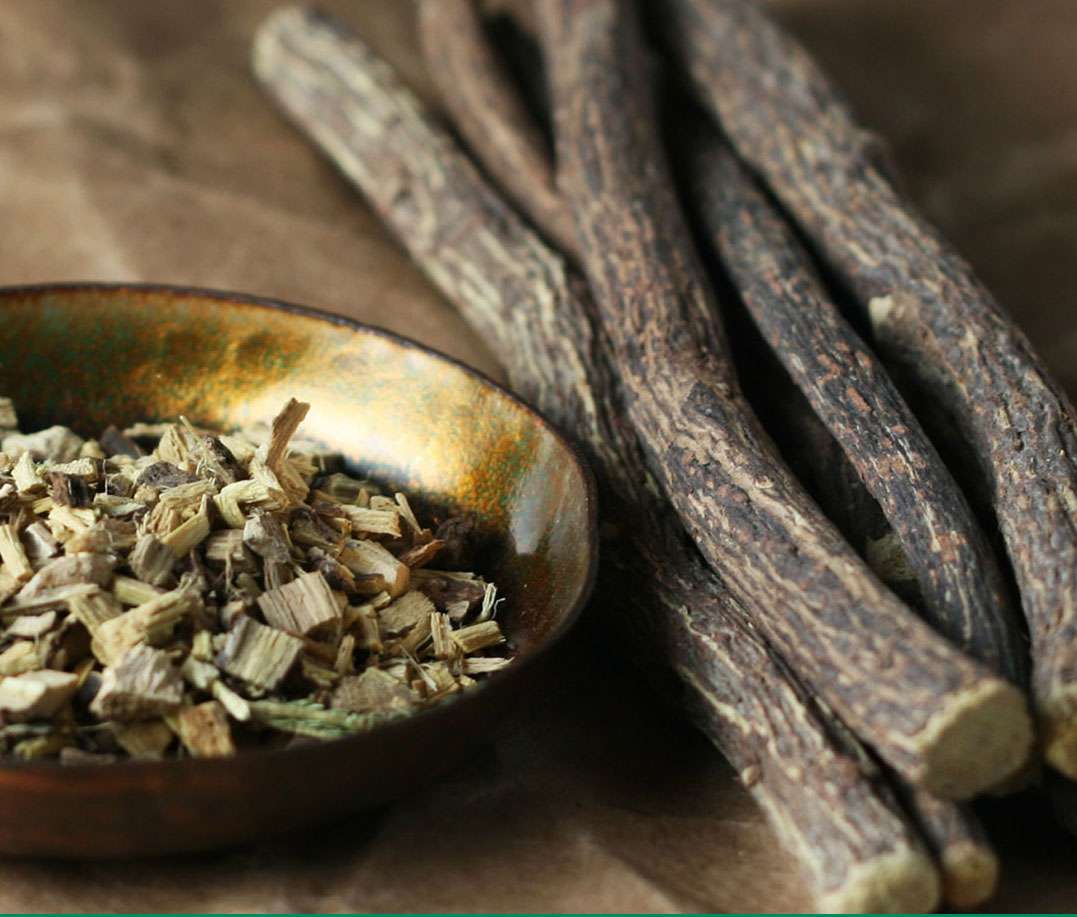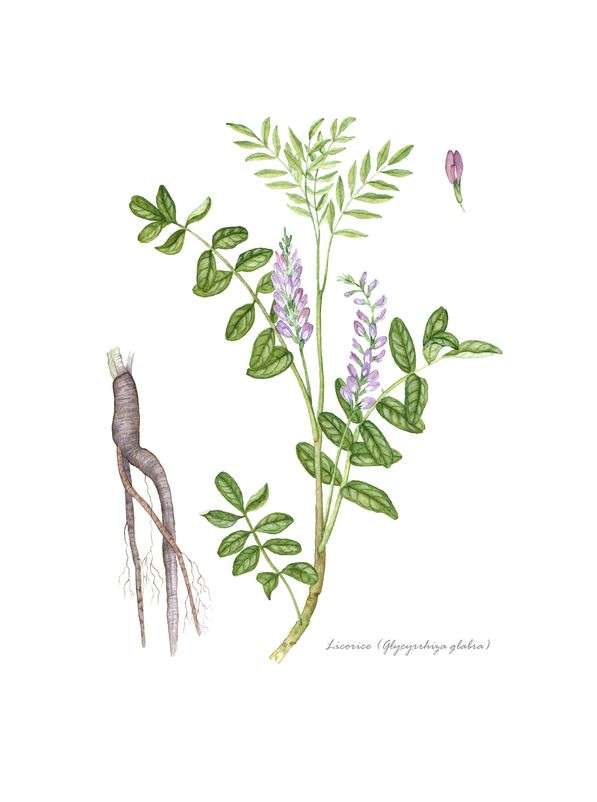
When you think about licorice do you think about candy?
Most likely! But did you know that licorice was used centuries ago in Greece, China, and Egypt for stomach inflammation and upper respiratory problems. Early Egyptians loved licorice root. They used it in tea as a cure for everything! Licorice was later imported to China where it became an important herb in Chinese medicinal tradition.
Today, people still use licorice root to help with digestive problems, menopausal symptoms, coughs, and bacterial and viral infections. 
Where did licorice get its name?
The word “licorice” refers to the root of a plant called Glycyrrhiza glabra, from which a sweet flavor can be extracted. That’s why it’s been used in candies and as a sweetener. Licorice is harvested from the plants’ roots and underground stems. Most licorice root grows in Greece, Turkey, and Asia.
Licorice is a legume!
Licorice, interestingly enough, is a member of the legume family. A legume is a plant in the family Fabaceae; these are mostly herbs but include also shrubs and trees. A legume is a simple, dry fruit contained within a shed or a pod. Legumes you know and love include peas, chickpeas, lentils, carob, soybeans, peanuts, black beans, and black-eyed peas.
In its centuries-long use, licorice root has been known to provide support for heartburn, leaky gut, adrenal fatigue, PMS and pain relief. The active ingredients in licorice include glycyrrhizin and flavonoids. Glycyrrhizin is an anti-inflammatory and antiviral substance, while the flavonoids are potent antioxidants, which help protect liver cells.
The chemicals contained in licorice are thought to decrease swelling, thin mucus secretions, decrease cough, and increase the chemicals in our body that heal ulcers. Licorice is considered to have immune-boosting properties. It’s also a demulcent (soothing) herb.
 It has also been known to help the body more efficiently regulate cortisol. Licorice is considered to be an adaptogen herb. Adaptogens are natural substances that work with a person’s body and help them adapt; most notably, to stress.
It has also been known to help the body more efficiently regulate cortisol. Licorice is considered to be an adaptogen herb. Adaptogens are natural substances that work with a person’s body and help them adapt; most notably, to stress.
Glabridin (Glab), an isoflavonoid of Glycyrrhiza glabra roots, has been associated with a wide range of biological properties such as antioxidant, anti-inflammatory, anti-atherogenic, regulation of energy metabolism, estrogenic, neuroprotective, anti-osteoporotic, and skin-whitening. (1)
Isoflavonoids belong to a group of compounds called flavonoids, or bioflavonoids, that occur naturally in plants where they serve various functions, for example as the pigments that give flowers and fruits their color. The main plant source of isoflavonoids is legumes, such as various kinds of peas and beans.
Licorice Root may be used as a treatment for the following health benefits:
• Heartburn and acid reflux including nausea, indigestion and stomach pain.
• Leaky Gut
• Adrenal fatigue
• Immune system support
• Cough/sore throat
• PMS/Menopause
• Pain relief
• Skin Problems
• Stress Relief
• Arthritis
• Tendinitis
Licorice is also used to flavor foods and beverages. That being said, Anise oil is often used instead of licorice root to flavor licorice candy because it has the characteristic smell and taste of "black licorice."
Licorice Root. Still being used for more than just candy.
If you'd like to check out some products that contain licorice root, please visit these links:
Immu Guard by Professional Botanicals
Muconell by Dynamic Nutritional Associates (DNA Labs)
Immunell by Dynamic Nutritional Associates (DNA Labs)
Leaky Gut by Professional Botanicals
Menopause by Professional Botanicals
Stress Complex by Professional Botanicals

_______________________________________________________________________________________________
Note: The content of this article, and additional content on this website, are for informational purposes only and are not intended to be a substitute for professional medical advice, diagnosis, or treatment. Always seek the advice of a physician or other qualified health provider with any questions you may have regarding a medical condition. Never disregard professional medical advice or delay in seeking help because of something you read here on this website.



